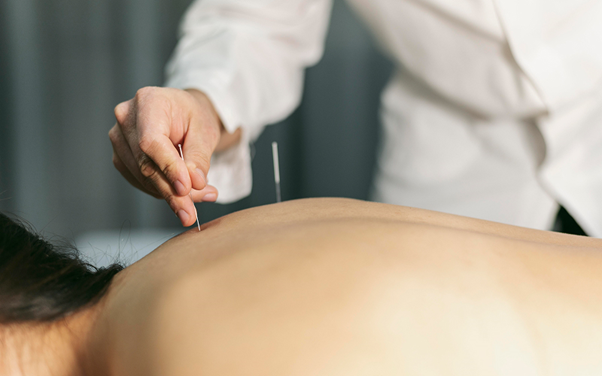A good night’s sleep is like charging your phone battery. Without it, the day feels flat, and the body runs on low energy. Sleep supports repair, strengthens memory, and restores balance for the body and mind. When tossing and turning becomes the norm, many look for remedies. Some reach for supplements, others try apps that play ocean sounds. In recent years, TCM acupuncture has entered the sleep conversation, offering a natural and structured method for rest.
What TCM Acupuncture Involves
TCM acupuncture is not a mystery. It involves fine needles placed at specific points on the body. Practitioners explain that these points link to channels of energy, often called meridians. The goal is to restore flow and balance, which in turn may support better sleep. While the idea of needles may sound daunting, the process is usually described as gentle rather than painful. Many patients even report feeling calm during sessions, which itself is helpful for easing into restful nights.
Evidence Behind Acupuncture and Sleep
Research has shown that acupuncture may influence the nervous system. Some studies suggest it helps regulate hormones such as melatonin, which play a role in sleep cycles. Other evidence points to reduced anxiety and muscle tension after sessions. These findings explain why people struggling with insomnia or irregular sleep often turn to acupuncture as part of their plan. Clinics offering the best acupuncture in Singapore sometimes highlight these studies to show how sessions fit into broader health care.
Comparing With Other Sleep Aids
Modern life has no shortage of sleep fixes. From blue light filters to herbal teas, the choices can be overwhelming. Unlike quick fixes, TCM acupuncture works on the idea of balance. Rather than masking tiredness, it aims to help the body reset its rhythm. This makes it different from short-term aids. Many who try it view it as part of a long-term approach rather than a single night’s solution.
Practical Benefits Noted by Clients
People who receive TCM acupuncture often speak of practical gains. Some notice fewer midnight wake-ups, while others say they fall asleep faster. For office workers who spend long hours at desks, the relief of muscle tension can also make bedtime more comfortable. Patients who try the best acupuncture in Singapore often mention that combining it with simple changes such as avoiding caffeine late in the day improves the outcome further.
TCM Acupuncture in Modern Clinics
Traditional Chinese medicine may sound ancient, but today it fits into modern clinical practice. Many licensed centres in Singapore provide treatment rooms designed for calm, with trained practitioners who follow safety standards. These clinics ensure sterile equipment and clear consultation before any session begins. For those curious about integrating TCM acupuncture into their lifestyle, having access to licensed services brings peace of mind. In fact, the best acupuncture in Singapore often includes personalised plans, where practitioners consider both sleep patterns and other health factors.
Long-Term Role of Acupuncture
When talking about sleep support, it helps to see how acupuncture can fit into a person’s routine over time. Regular sessions may support healthy sleep cycles by reducing tension and calming the body. Instead of being a quick fix, TCM acupuncture can serve as part of a steady plan to manage stress and improve rest quality. Many patients view it as an option that links tradition with practical wellness, making it a choice for those who want balance in both mind and body.
A Restful Thought
Sleep may seem like a simple act, but quality rest is often harder to achieve than it sounds. With routines becoming busier and screens shining brighter, natural aids such as acupuncture have drawn more attention. Whether as a complement to lifestyle changes or as part of a broader health plan, it offers an option that connects body, mind, and rest.
Contact NovaHealth TCM Clinic to see how acupuncture can support your journey toward nights that recharge and mornings that feel brighter.

